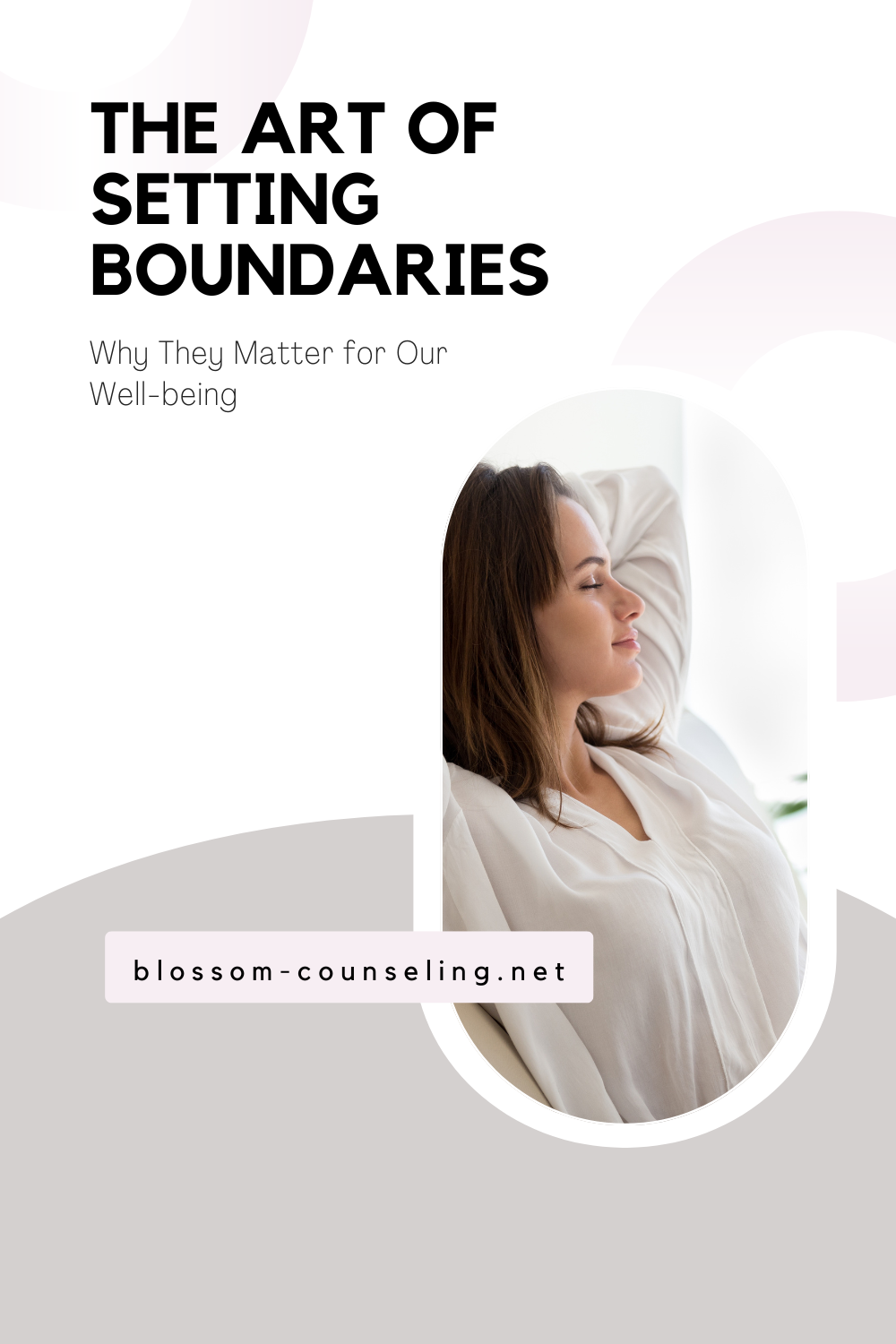
In our buzzing, interconnected world, the concept of boundaries might seem like a relic from a bygone era of privacy and restrained communication. Yet, establishing and maintaining boundaries is not just a crucial component of self-care—it’s foundational to our mental and emotional health. Let’s dive into why boundaries are essential and how advocating for them can be a transformative step towards personal healing and societal harmony.
Understanding Boundaries: The Invisible Lines
Boundaries are the personal limits we set with other people, which dictate what we find acceptable and unacceptable in their behavior towards us. These can range from physical boundaries (like personal space) to emotional ones (such as the need for privacy in our thoughts and feelings). The act of setting boundaries is inherently tied to our understanding of self-respect and self-worth.
Why Boundaries Matter
- Mental Health Preservation: Boundaries are like the emotional equivalent of an air filter; they keep out the harmful toxins and let in the good stuff. By defining what we are comfortable with, we protect our mental space from being overwhelmed by the demands and troubles of others.
- Enhanced Relationships: Paradoxically, boundaries don’t push people away; they actually draw them closer. When we clearly communicate our limits, we create a safer space for genuine interaction, where both parties feel understood and respected.
- Increased Self-Esteem: Each time you advocate for your boundaries, you’re essentially saying, “I value myself enough to protect my needs.” This affirmation builds self-respect and confidence, which are critical components of a healthy self-image.
- Prevention of Burnout: Especially in our fast-paced, always-connected era, it’s easy to feel pressured to be perpetually available. Boundaries around time and energy are crucial to prevent burnout, allowing us to recharge and return to our social circles and work responsibilities with renewed vigor.
The Challenge of Advocating for Boundaries
Despite their importance, many of us find it difficult to establish and maintain boundaries. The reasons are manifold—from fear of rejection to the discomfort of potential conflict. However, advocating for our boundaries is essential, not just for our personal well-being but for the health of our society at large.
Cultivating a society that respects personal boundaries contributes to the overall emotional and psychological health of its members. It creates an environment where individuals can interact without overstepping, fostering a culture of mutual respect and understanding.
Practical Steps to Advocate for Your Boundaries
- Identify Your Limits: You can’t set boundaries if you’re unclear about what you need. Reflect on areas in your life where you feel resentment, discomfort, or exhaustion—these emotions are often signs that boundaries need to be put in place.
- Communicate Clearly: Once you know what your boundaries are, communicate them clearly, firmly, and respectfully. You don’t need to justify, argue, defend, or over-explain your decision.
- Stay Consistent: Advocating for boundaries isn’t a one-and-done deal; it requires consistency. Others may test your limits, not out of malice, but out of habit. By consistently upholding your boundaries, you teach others how to treat you.
- Practice Self-Compassion: Setting boundaries can be tough, especially if you’re not used to putting your needs first. Be kind to yourself throughout the process, recognizing that advocating for yourself is a skill that requires practice.
The Ripple Effects of Well-Defined Boundaries
When we set boundaries, we not only enhance our own well-being but also model healthy interactions for those around us. By showing respect for our own limits, we teach others to do the same, creating a ripple effect that can transform interpersonal dynamics. Whether at home, at work, or in broader social settings, well-maintained boundaries are the bedrock of a healthy, civil society.
Setting boundaries is more than a personal choice—it’s a societal necessity. By advocating for the spaces we need to thrive, we contribute not only to our personal healing but to the creation of a society that prioritizes mental and emotional well-being for all its members. Remember, in the tapestry of human interactions, every line drawn strengthens the whole.




